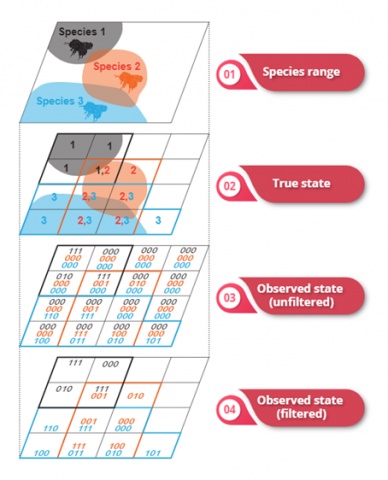Join Vaughn Shirey (Georgetown University), Dr. Melissa Guzman (Simon-Fraser University), Dr. Rassim Khelifa (Simon-Fraser University), and Dr. Leithen M'Gonigle (Simon-Fraser University) in a webinar presented by the Symbiota Collections of Arthropods Network (SCAN):
"Historical museum records provide potentially useful data for identifying drivers of temporal trends in species occupancy, however, because these records were not explicitly collected for this purpose, methodological developments are needed inorder to enable robust inferences. Occupancy-detection models, a relatively new and powerful suite of methods, are potentially useful here, because these models allow us to account for changes in collection effort through space and time. Applying such occupancy-detection models to historical museum records is not a straightforward process, as these models have strict data requirements that museum data usually do not meet. Failing to account for these requirements can lead to biased results (e.g., Guzman et al., 2021). Here we present a methodological road-map for using occupancy models to analyze historical museum records. We use simulated data-sets to identify how and when modelling decisions and patterns in data can bias inferences. We focus primarily on the consequences of contrasting methodological approaches for dealing with species ranges and non-detections in both space and time (Figure 1). Finally, we include a case study using butterflies in California, in order to compare the inferences produced from museum records vs. those derived from rigorous long-term monitoring schemes. Our work also includes computational optimizations that will facilitate analyses of large data-sets."
A recording of this webinar is available at https://vimeo.com/597196037.





